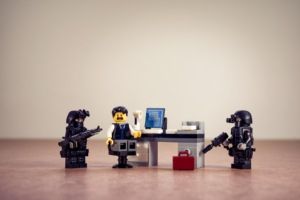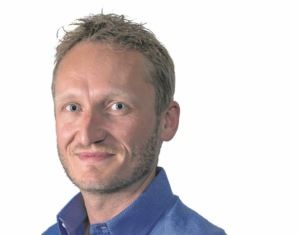Opinion
Mind over managing: Revolution!? Why doesn’t Danske Bank’s mess bring the masses to the barricades?
Daniel K Reece
This article is more than 6 years old.

Bankers never play well (photo: Pixabay)
In March 2017 an investigation by journalists from Berlingske first brought to the world’s attention the ‘Russian Laundromat’ – the laundering of funds, sourced mainly from Russia, through Danske Bank’s Estonian branch.
The fallout has been immense, with criminal investigations ongoing in Denmark, Estonia, the US and France. When you consider the amount involved, this is not surprising. At an estimated 200 billion euros, it’s the largest money-laundering scandal in history.
200 … billion … euros
Bearing in mind the sheer scale, you might ask why this isn’t bigger news than it has been? Although it’s been covered by the financial press abroad, it hasn’t received extensive coverage. Even in Denmark, many people are unaware of the scale.
Why haven’t the police raided the head office of Danske Bank in a similar fashion to how Deutsche Bank (also involved in the scandal) was stormed by the German police last November?
Do numbers lose their meaning when they get this big?
A hazardous game
It seems we are no longer shocked by both the ultra-aggressive risk taking and alleged criminal actions of international bankers.
Following the 2008 global financial crisis, it’s clear to both the public and the bankers themselves that they are effectively operating with moral hazard – the knowledge that no matter what risks they take, they can’t lose.
Either they’ll be bailed out by the state, or snoozing regulators will pay no notice. For example, the Danish Financial Supervisory Authority has been accused in the Danske case of being too close to the bank. Asked about this recently, the business minister, Rasmos Jarlov, responded that “it’s a fair point”.
After all, only one banker has been jailed on charges directly related to misconduct during the 2008 crisis.
Unpicking the jigsaw
You could argue that over the past 30 years our civilization has become “financialised” to such an extent that, despite our outrage, the effect of attacking our financial institutions may well have such detrimental knock-on effects for the rest of society that governments are unable and/or unwilling to do so.
Does the Danish government really want to see the board of Denmark’s largest and most prestigious lender escorted from Holmens Kanal in cuffs? Do pension companies, even individual investors, want to see the value of their banking shares plummet?
This apathy is expanded on in Kaspar Kolling Nielsen’s brilliant 2013 novel ‘The Danish Civil War: 2018-2024’, which envisages the country erupting in revolution.
With the scale of the scandal growing by the day, it will be fascinating and alarming in equal measure to see how this saga plays out.

About
Daniel K Reece
Daniel is the managing director of Nordeq Management (nordeqmanagement.com), managing cross-border investment projects with a focus on international corporate and tax law issues. Educated as a lawyer, Daniel also teaches in the International Business and Global Economics department at DIS Copenhagen. Daniel is passionate about mindfulness as a means of personal transformation.










































